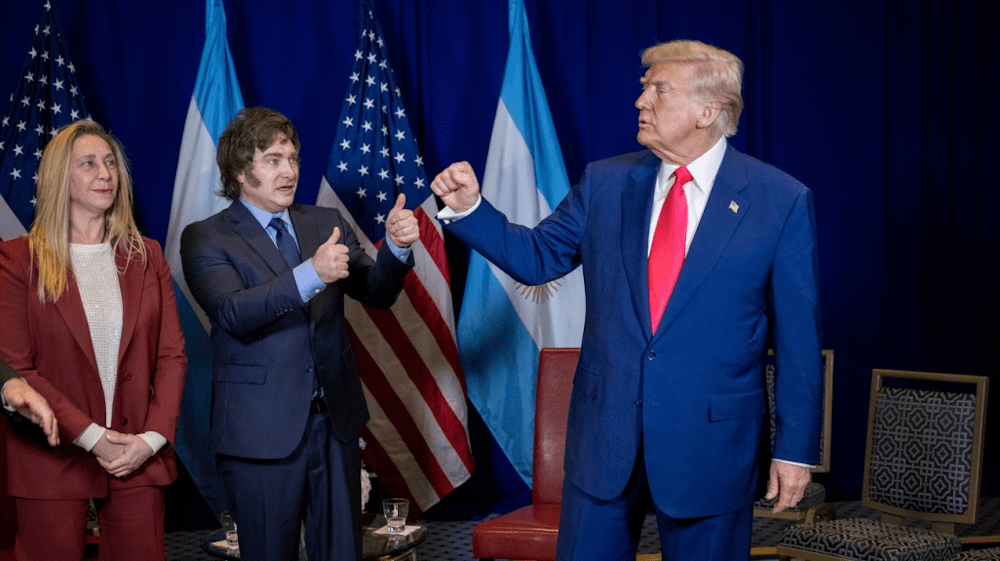In the context of the ongoing debate surrounding the prospective transfer of YPF shares as a settlement for a US$16-billion judgment linked to the expropriation of the oil company, the United States government has declared its intention to intervene in court to provide support for Argentina. The administration of US President Donald Trump is preparing to submit an amicus curiae brief in support of Argentina’s appeal to halt the decision mandating the transfer of 51 percent of shares in the state-owned energy company YPF.
The US Department of Justice is set to file with the New York Court of Appeals, aiming to uphold the freeze on Judge Loretta Preska’s order during the appeal process, as reported by various local sources. Currently, a temporary suspension is enforced while awaiting the submission of legal arguments from both parties. Washington’s intervention seeks to guarantee that the suspension persists throughout the entirety of Argentina’s appeal process.
The action taken by the Justice Department is expected to strengthen Argentina’s stance as it contests Preska’s June ruling, which mandated the prompt transfer of shares to litigation funds Burford Capital and Eton Park subsequent to the nation’s defeat in a 2023 court case. The current status of that order is on hold as a result of Argentina’s appeal.
In 2024, during the Biden administration, the US had submitted an amicus brief that dismissed the plaintiffs’ efforts to implement the ruling through the transfer of YPF shares. At that moment, the Justice Department contended that such an action “violates the United States’ sovereign immunity standards.”
However, Preska disregarded the US government’s stance and ruled against Argentina. Last week, Argentina submitted a formal appeal following Preska’s directive for the nation to divest its majority stake in the state-owned oil company YPF. The court has mandated that Argentina divest its 51 percent interest in YPF to facilitate the resolution of a debt amounting to US$16.1 billion owed to two previous minority stakeholders.
In 2012, Argentina nationalized 51 percent of the company from the Spanish oil giant Repsol, which subsequently received approximately US$5 billion in compensation. However, minority shareholders Petersen Energia and Eton Park Capital, collectively owning approximately 25 percent of the company, initiated legal proceedings asserting that they had not received adequate compensation.
Judge Preska ruled in favor of the plaintiffs and, in September 2023, mandated that Argentina compensate the two firms, a directive that remains unfulfilled. Last week, the judge ruled that Argentina is required to divest its interest in YPF as a means to mitigate the debt burden. The legal division of the Argentine Treasury has verified that the nation has commenced appeal proceedings.
In an interview with the Noticias Argentinas news agency, Sebastián Maril, CEO of Latam Advisors, provided a nuanced perspective, clarifying that an amicus brief serves as formal backing from an independent third party in a legal matter, “adding arguments to persuade the judge or panel of judges to rule in favour of the party receiving support.” Maril clarified that, at this juncture, the intervention by the US Department of Justice does not seem to encompass the wider appeal concerning the US$16.1-billion ruling, nor does it specifically tackle the directive to transfer shares.
This recent intervention seeks to alter that trajectory and avert Argentina from having to promptly cede its majority ownership in YPF. Burford Capital is anticipated to submit its objection to Argentina’s request for an extended suspension on July 17, while the Argentine government is set to present its arguments in support of maintaining the stay on July 22. A decision is forthcoming regarding Argentina’s appeal to suspend the payment until the hearing takes place.
The ruling represents a significant challenge for President Milei, whose administration aims to strengthen foreign currency reserves and control rampant inflation amidst a substantial debt load. Should it diminish in attractiveness, Argentina has committed to pursuing recourse through higher judicial avenues.

